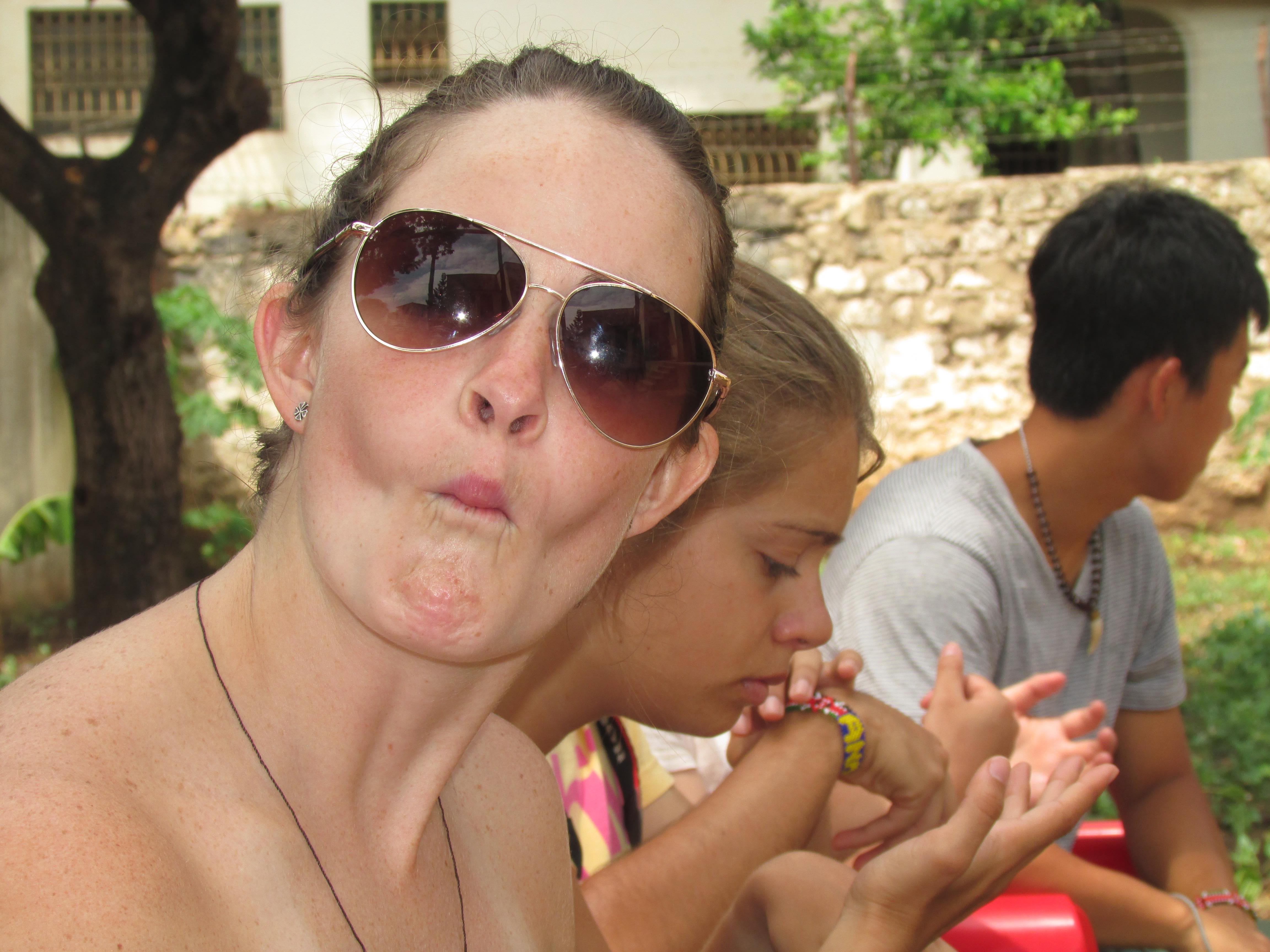 Visit Elective Africa website Visit Elective Africa website
|


|
|
|
| Elective Africa Monthly Newsletter |
 |
|
Travelling abroad has been made so easy unlike centuries ago when explorers had to spend years to go for their exploration. With travel agents, online bookings and placements organisers like Elective Africa all you need to do is prepare yourself and voila! you are in Africa or whatever place you will choose to go. Read more on ways to stay healthy while traveling abroad. Your stay abroad will be much more fun when you immerse in the local community's culture. In Mombasa, Kenya, the Swahili people will amaze you with not only their dressing but also their cuisine, architecture, music and dance. Learn more on the four main elements of culture that you are likely to encounter while in a Mombasa Kenya Elective. Katie Lobban also shares her pre-physician assistant shadowing internship at Coast Provincial General Hospital, Mombasa, Kenya. Is there an area you would like us to focus on? is there a topic that interests you and that you would like to guest write for us. Reach out to us to speak about it. Back to top |
| My Pre-Physician Assistant Experience |
 |
|
My experience in Kenya was absolutely amazing and I would go back in a heart beat. I went to Mombasa and worked in Coast Provincial General Hospital. It is a larger hospital and you have a lot more opportunity. I was worried when I first found the program that I would maybe just be observing or something. That was definitely not the case at all. As a Pre-PA I was paired with a Clinical Officer there, which is our equivalent to a PA pretty much. I spent my four weeks going around the different wards seeing and doing a bunch of things I could never do here in the States. When I was there there were 4 English, 4 Australians, 6 Norwegians, and 2 American interns. Most of them were studying to be doctors. Having them around and in the hospital really helped as well because I would go with them some days to minor theater (where minor surgeries are done) and would first show and then teach me how to do it and then I was able to assist. I was able to shadow in variety of procedures such as Catheters, injections, IVs, sutures, resuscitate a baby, watch C sections, watch a major surgery, and examine women in the AnteNatal ward. I found that for the first week I was just getting used to the hospital and doing a lot of observing and learning. So the first week was a lot of observing but also getting to learn how to examine patients. The weeks following were when I got to assist in minor surgeries and other exams. Besides the hospital though you do so much with the program. We volunteered at two schools and one we went 2x a week and taught in their classrooms (just simple math or something) and then played sports with them after or sang and danced. Then on Wednesdays they would come to our residence and we would teach them how to swim. This is where I found I learned the most about the people there, the culture, and a lot about myself was during this time with the children and adults. You also get a chance to go on safari which I definitely recommend. It will give you a break and is so amazing. I found that I enjoyed the hospital even more after my safari. Back to top |
| Save USD 100 on your Placement Abroad |
 |
|
Are you thinking of undertaking a clinical elective placement abroad or Pre-Health Shadowing Internship to Africa? We are delighted to let you know that we have extended our July discount for the first 2 weeks of August. Reserve your slot by 14 August and enjoy US $100 off your reservation deposit. Back to top |
| Four elements of Swahili Culture you’ll encounter in Mombasa, Kenya |
 |
|
The swahili people are an ethnic group living at the coastal region of East Africa, with the name swahili derived from the Arabic word Swahili, which means “people who dwell at the coastal region” In your placement in Mombasa, Kenya you will not only live with the Swahili but also immerse in their culture. Here are 4 things that you are likely to encounter in your stay in Mombasa, Kenya. Swahili way of dressing Anyone visiting the coastal region of Kenya for their first time, is always greeted with sweet aroma. As a famous Swahili saying goes “ Kuingia ni Harusi, Kuodoka ni Matanga”. To mean Visiting coastal Kenya is like a wedding celebration, but leaving the place is compared to a funeral because no one wants to leave this amazing city. The Swahili dishes are one of the elements that would make one fall in love with this culture. Swahili cuisines, which are highly spiced, have African, Middle Eastern, and Indian influences. Rice, the staple food, is cooked with coconut milk and served with tomato-based meat, bean, or vegetable stews. Meals are incorporate with locally available vegetables (egg-plant, okra, and spinach), fruits (mangoes, coconuts, pineapples), and spices (cloves, cardamon, hot pepper). Fish is also central to the diet. Chicken and goat meat are popular for holiday meals. Sweet tea with milk is served several times a day. The most popular meal is a Pilau Dish. Pilau is a common dish all over the world, but the secret to the Swahili version is that it’s flavoured with the spices fresh from the “Spice Island”, Zanzibar. Famous for clove and cinnamon, and with the addition of cardamom, Swahili pilau is a delicate, fragrant and beautiful dish that’s always welcomed Swahili Music and dance The slow rhythmic tunes mostly played in the Coastal Kenya will make you fall in love with the music over and over again. The famously known Taarab songs will slowly melt your heart into the rhythm. Another unique coastal culture music is the Chakacha music. Chakacha is a very popular dance amongst the coastal tribes. Unlike the other dances, coastal dances focus mainly on vigorous waist movements. and danced along in the traditional taarab rythm. With Taarab music and dancing, the instrumentals take up most of the song giving both the dancers and the performers time to shake their waists and move their hands freely. The major difference between chakacha and Taarab is the tempo of the songs with chakacha being the faster kind of music. Swahili Architecture Swahili architecture, a term used to designate a whole range of diverse building traditions practiced or once practiced along the eastern and southeastern coasts of Africa, is in many ways an extension of mainland African traditions, although structural elements, such as domes and barrel vaulting, clearly connect to Persian Gulf area and South Asian building traditions as well. Exotic ornament and design elements also connected the architecture of the Swahili coast to other Islamic port cities. In fact, many of the classic mansions and palaces of the Swahili Coast belonged to wealthy merchants and landowners, who played a key role in the mercantile economy of the region. (Bountless.com) Back to top |
| 5 ways to stay healthy while traveling abroad |
 |
|
Explorers used to plan their expeditions for years. They stockpiled supplies, mapped their routes and hired experts to ensure a safe journey.But today, travellers often jump on a plane with barely a thought about their well-being. "Don't assume it's going to be OK," said Dr. Deborah Mills, author of "Travelling Well" and spokeswoman for the Australian Travel Medicine Alliance. "You plan for your passport, your visas and you save your money, but health should be on your little checklist." Getting sick overseas can be scary. You're in an unfamiliar place and often don't speak the language. Although each trip is different, there are universal things you can do to keep safe. Here are five ways to stay healthy while traveling abroad, whether you're exploring new territory or not. Be Prepared The first step is to register with STEP, says Brendan O'Brien, director of American Citizens Services with the U.S. State Department. The Smart Traveler Enrollment program asks for information about your trip so the U.S. government can send alerts for the country you're visiting and is better able to assist you in an emergency. The World Health Organization is also an excellent resource for researching your destination. The WHO International Travel and Health guide provides information on the health risks associated with each country and what you can do to prepare. Most important is to schedule a visit with a doctor who specializes in travel or the area you're visiting at least four weeks before your departure, says WHO public health expert Dr. Gilles Poumerol. A travel doctor will be able to give you the required and recommended vaccinations as well as discuss any medical issues you may encounter abroad. Get Insurance "In many countries where you have limited access to health care, good health care is only found in the private sector and can be very expensive," Poumerol said. Ask your health insurance company whether your policy applies overseas and whether it will cover trips to a foreign hospital. If not, there are many companies that offer short-term travel health insurance for a reasonable fee, O'Brien says. Pack Well As much as you might want to take that extra pair of shoes, you should leave room in your carry-on bag for some important medical documents and supplies. Mills recommends packing a medical kit that includes extra doses of any regular medications you take, antibiotics, sterile syringes/needles and the basics for first aid: bandages, wraps, ibuprofen etc. "You won't get the sort of things you need in a regular drugstore," she said, so asking your travel doctor for supplies is best. Poumerol also suggests bringing a note from your doctor in English and the language of the country you're visiting that justifies any medication you're bringing on the trip; some countries outlaw certain drugs that are legal in your home country. Other experts recommend bringing a note about any medical equipment that could be ruined by airport scanners. Packing an emergency contact list is important, O'Brien says. Contacts should include the local embassy and/or consulate, relatives who should be notified if you get sick and your health insurance company. Don't Wait Mills' travel medicine clinics have helped people plan trips abroad for years. The top four medical issues her patients deal with are gastrointestinal problems, respiratory illnesses (coughs, colds, pneumonia), pain and wounds (cuts, scrapes, bruises). But of most concern, she says, are tropical diseases like malaria. ''We call malaria a 'cliff disease.' People don't really feel too bad, and then all of a sudden they're over the cliff, and they're dead." Even common stomach problems caused by drinking or eating local fare can rapidly deteriorate into severe dehydration, Mills says. If you are feeling sick in a foreign country, seek help as soon as possible. Ask your hotel concierge for good health care facilities nearby. Your travel health insurance company and the embassy will also have a list of local providers who speak your language. Be Aware You have to be in charge of your health. If you're being treated abroad, question the medical staff about their sterilization practices; Gilles says injection equipment should be put in boiling water for at least 30 minutes or used only once. Also be sure doctors and nurses are wearing gloves to prevent fluid transfer. Limiting your alcohol intake will keep you focused on your safety, Mills says. If your common sense is intact, the rest of your body should follow. While travelling abroad is very enriching, staying healthy ensures that you have a seamless trip abroad. Reach out to us if you need further advice on the health and safety preparations as you plan to travel abroad. Adopted from CNN written by Jacque Wilson Back to top |
| Don't Leave your Friends Behind! |
 |
|
Back to top |
|
|

 8 2017
8 2017